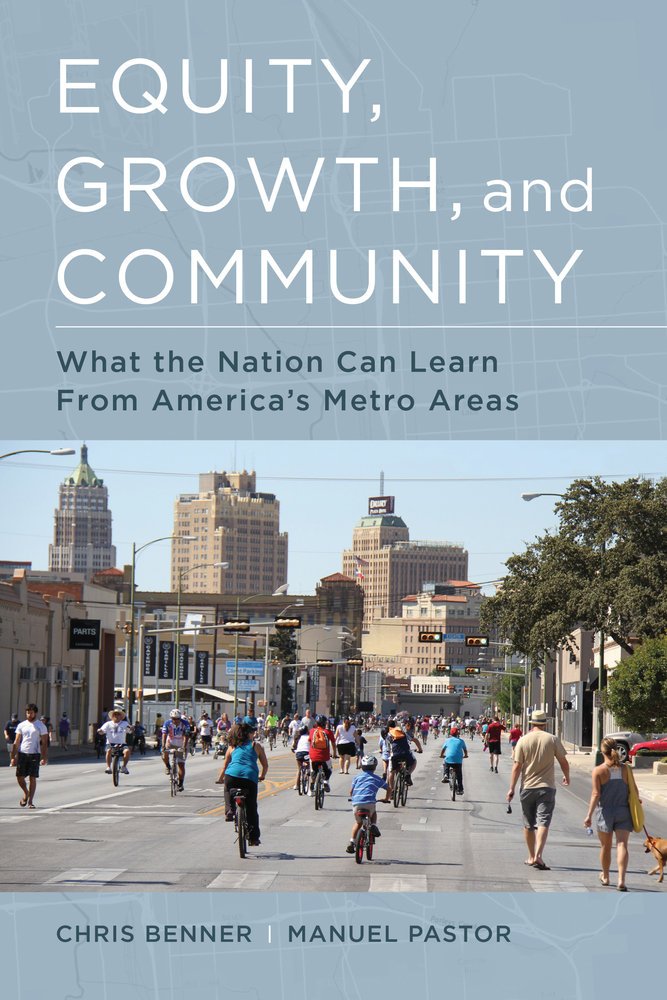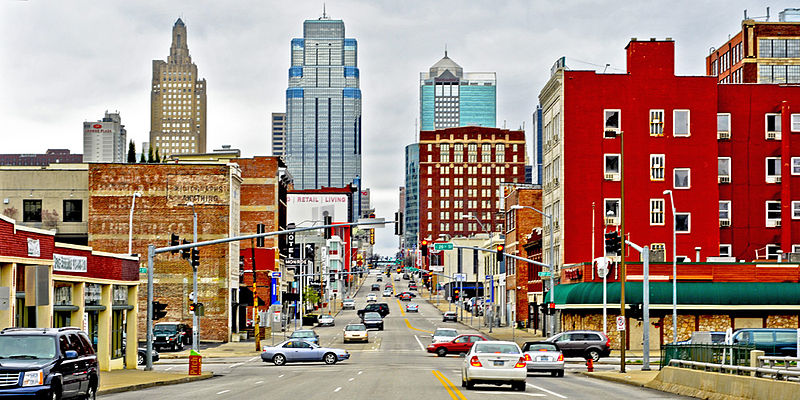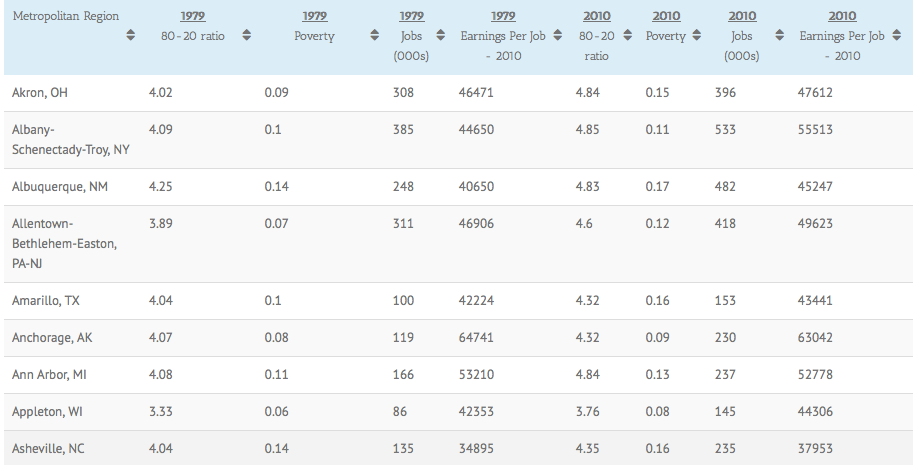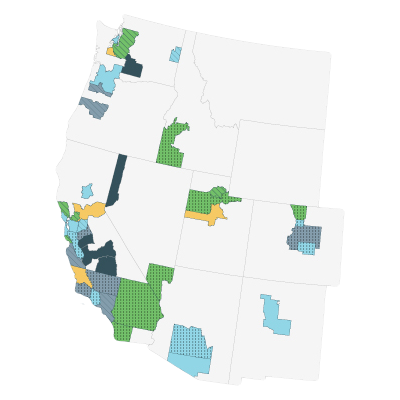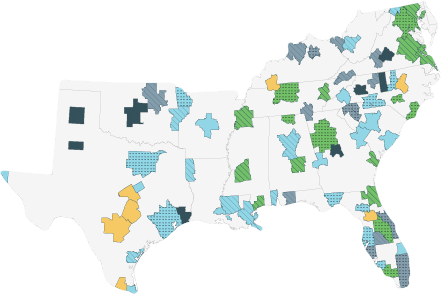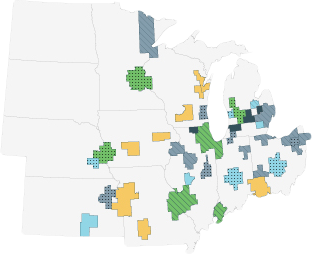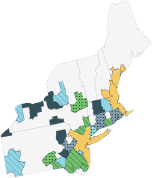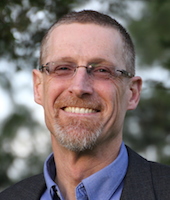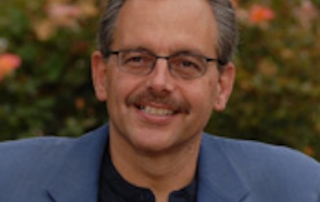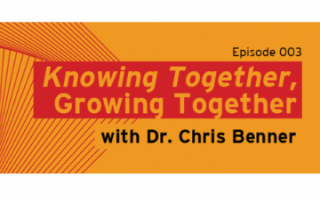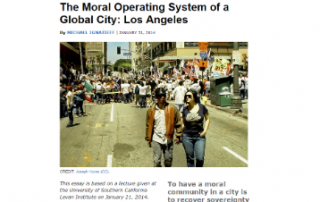About Equity, Growth, and Community
What the Nation Can Learn From America’s Metropolitan Regions
In the last several years, much has been written about growing economic challenges, increasing income inequality, and political polarization in the United States. This new book by Chris Benner and Manuel Pastor argues that lessons for addressing these national challenges are emerging from a new set of realities in America’s metropolitan regions: first, that inequity is, in fact, bad for economic growth; second, that bringing together the concerns of equity and growth requires concerted local action; and, third, that the fundamental building block for doing this is the creation of diverse and dynamic epistemic (or knowledge) communities, which help to overcome political polarization and help regions address the challenges of economic restructuring and social divides.
Benner and Pastor examine how inequality stunts economic growth and how bringing together equity and growth requires concerted local action. Combining data, case studies, and emerging narratives on multi-sector collaborations in 11 metro regions, the book offers a powerful prescription not just for metros but for our national challenges of slow job growth, rising economic inequality, and sharp political polarization.
Learn More About the Book
Read and Download for Free
As America bolts toward a more multiracial future in the face of skyrocketing inequality, local leaders are desperately seeking strategies to foster more inclusive growth. Chris Benner and Manuel Pastor’s research uncovers a critical ingredient of success: diverse regional leaders coming together to build a foundation of shared knowledge and advance positive change.
This book, the latest fruit of a highly productive collaboration between two first-rate thinkers, is both immensely wise and highly practical—a must-read. Benner and Pastor blow apart simplistic ideas about collaborative problem-solving—which tend to stop at reframing or the magic of dialogue—to show how the locally driven process of generating shared knowledge, risk-taking and even productive conflict can generate real progress on the most urgent challenges our country and our communities face.
Blog
The conversation doesn’t end when the book is in your collection. Equity, Community, and Growth is a living project that you can be a part of. Follow our Knowing Together, Growing Together blog and be informed when new developments takes place in any of the Metro Regions featured in the book.
Visit our Connect page for more ways to be part of the evolving conversations around the country on equity, growth, and community.
Equity, Community, and Growth Blog
Davis organization attempts to raise minimum wage to $15
According to Chris Benner, professor of community and regional development and a supporter of the campaign, raising the minimum wage wouldn’t have a significant impact on the consumer.
“The estimates for $15 of minimum wage are that it would be a 10 percent increase in restaurant prices and a four percent increase in retail,” Benner said.
Read Full Article
Technology and Inequality
The signs of the gap—really, a chasm—between the poor and the super-rich are hard to miss in Silicon Valley. On a bustling morning in downtown Palo Alto, the center of today’s technology boom, apparently homeless people and their meager belongings occupy almost every available public bench. Twenty minutes away in San Jose, the largest city in the Valley, a camp of homeless people known as the Jungle—reputed to be the largest in the country—has taken root along a creek within walking distance of Adobe’s headquarters and the gleaming, ultramodern city hall
Read Full Article
Knowing Together, Growing Together: Equitable Opportunity Radio podcast
ICYMI (in case you missed it) listen to Dr. Chris Benner on the Equitable Opportunity Radio podcast, in an episode called, Knowing Together, Growing Together
Available free via iTunes. Download Episode 003 – Knowing Together, Growing Together >>
July 6, 2015: In Knowing Together, Growing Together, Dr. Benner talks about how metropolitan regions that achieve a high degree of communication and collaboration among diverse stakeholder groups grow faster than other metropolitan areas. He discussed what places like Salt Lake City and Oklahoma City have done to grow their economies, reduce inequity, and create a more inclusive economy and community.
Developing Epistemic Communities in a Global City: Los Angeles
In this 2014 essay focused on the changing sociocultural dynamics observed in global cities, Michael Ignatieff discussed the social and moral factors necessary for community-based inclusive growth in the face of rapid migration and shifting demographics.
Although global cities such as Los Angeles and New York have seen the emergence of multiracial, multilingual, and multicultural communities, they have also seen tension and compromise. Ignatieff saw the community as having moral properties guiding its development, but agreed with a central notion in Benner and Pastor’s Just Growth book that a community has epistemic ones too: “without shared knowledge, a community is prey to rumor, panic, disinformation, or manipulation,” he said. “With shared knowledge, a community can act to defend its interests and do politics together.”
In light of Los Angeles rapidly becoming a majority-Latino city, Ignatieff pointed out a new expectation at the […]

